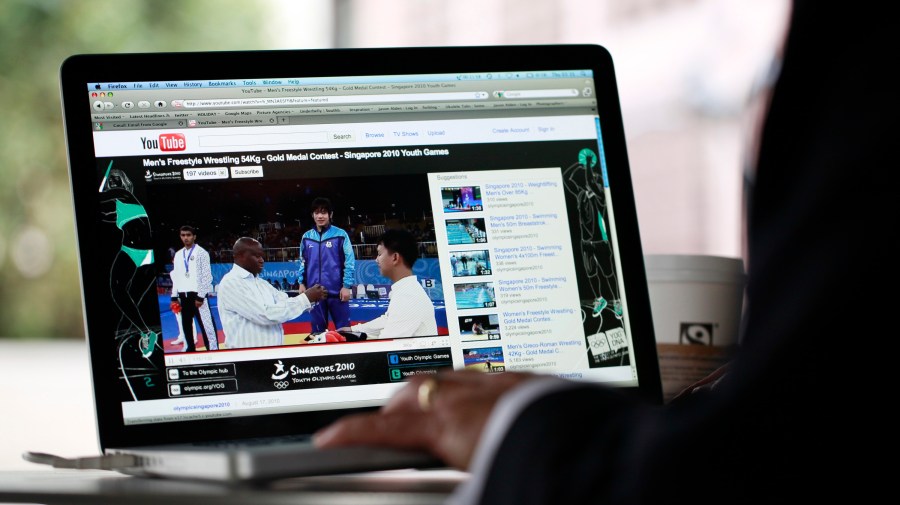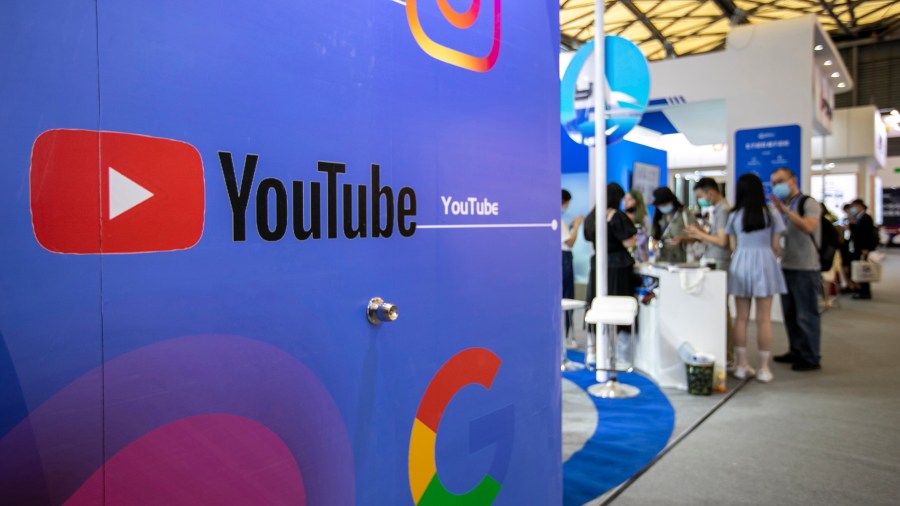How Do You Play Videos in HD on YouTube?

From home-recorded, do-it-yourself repair videos and amateur music sessions to clips from TV shows and pro sports games, YouTube offers every type of video content you can think of — and fans just can’t get enough of it. Since its launch in 2005, the free video-sharing site has achieved a level of success that is off the charts, with more than 2 billion monthly visitors in 2020.
Some of the content available on YouTube was filmed by professionals using high-tech equipment, and you certainly want to take advantage of that quality when you sit down to do some viewing. If you want to always watch high-definition (HD) videos (when available), that’s easy to do with a simple adjustment to the video quality setting for playback. Let’s take a look at how you can watch YouTube videos at the best quality every time you click play.
Access Your YouTube Account
To change your YouTube settings, you first need to sign in to your YouTube account. YouTube is a subsidiary of Google and uses Google account information. If you already have a Google account, you will use that username and password to sign in. If you have never signed up for any Google services, you can easily set up a new account in just a few minutes from the YouTube page by clicking Log In in the top right corner and selecting Create Account.

You can also opt to watch videos on YouTube without logging in, but that method includes several restrictions. You won’t be able to watch any videos that have age restrictions or add any of your own content on your own channel without logging in. You also can’t like or dislike videos, share your favorites with friends or subscribe to channels if you don’t have an account.
Manually Change Your YouTube Settings on Your Computer
In the past, users could change the preferences for YouTube to play videos in standard definition or high definition. The site has come a long way since those early days and now automatically adjusts the playback speed of videos by default based on viewing conditions at the time. Factors like your current connection speed and the size of the playing screen — full-screen or smaller — all affect the default playing speed. Additionally, videos that were only recorded in standard definition won’t ever play in high definition.

If you want to manually change the video quality to play videos in HD (if available), the process is simple. Navigate to the video you want to watch and click the Settings icon — it looks like a gear — on the video player. Click Quality and select the 1080-pixel HD option. If you don’t see that option on the list, then HD viewing isn’t available for that particular video. On a mobile device or TV, click the three vertical dots in the top right corner of the player to access the settings. Keep in mind that videos may not play well in HD if the current viewing conditions — slow speeds, etc. — don’t support it.
Activate Premium AV1 Video Playback
A new premium video standard known as AV1 offers as much as 50% greater efficiency than previous standards, but it isn’t widely available yet and requires a significant amount of computing power to play. If you want to set your YouTube player to always play videos in AV1 HD format when it’s available, sign in to YouTube and click the icon with your photo — if you have one for your Google account — or your initial in the top right corner. Select the gear-shaped icon labeled Settings from the drop-down list of options.

When your account page opens, click Playback and Performance on the left sidebar menu. If your browser supports the AV1 format — some browsers don’t — the main screen will have an AV1 Settings section. Choose “Always Prefer AV1” to always play videos in AV1 HD format. This will prompt your computer to stream this extremely high-quality video format if your computer is powerful enough and the format is available (still rare).
Pros and Cons of Watching Videos in High Definition
Those crisp, clear images are usually all the inspiration you need to watch YouTube videos in HD. After all, no one wants to put up with the image graininess that goes with low-quality video footage, especially if you’re trying to follow along with an instructor on a workout video or DIY instructions for making a repair. Even when watching for fun, your viewing time is limited, and you want it to be the best it can be.

However, although HD viewing reigns supreme in terms of image quality, HD files are much larger than SD files that deliver a lower quality viewing experience. Why does that matter? Well, the large file size associated with HD video requires a fast internet speed to avoid lag and buffering that can diminish the viewing experience when you’re trying to enjoy your favorite video and music clips.
Switching Between SD and HD on YouTube
If you’re connected to high-speed internet, you can probably enjoy HD videos at all times, but that may not be the case if you have an internet data plan that limits the speed of your downloads based on size or your internet connection isn’t very fast, especially if multiple people in your home are streaming or downloading at the same time. In those scenarios, you can create a balance between enjoying pristine image quality and enjoying smooth, lag-free videos by switching between HD and SD videos based on your computer’s internet performance while you’re watching. SD won’t be as sharp and clear, but it can help you avoid those annoying lags.






